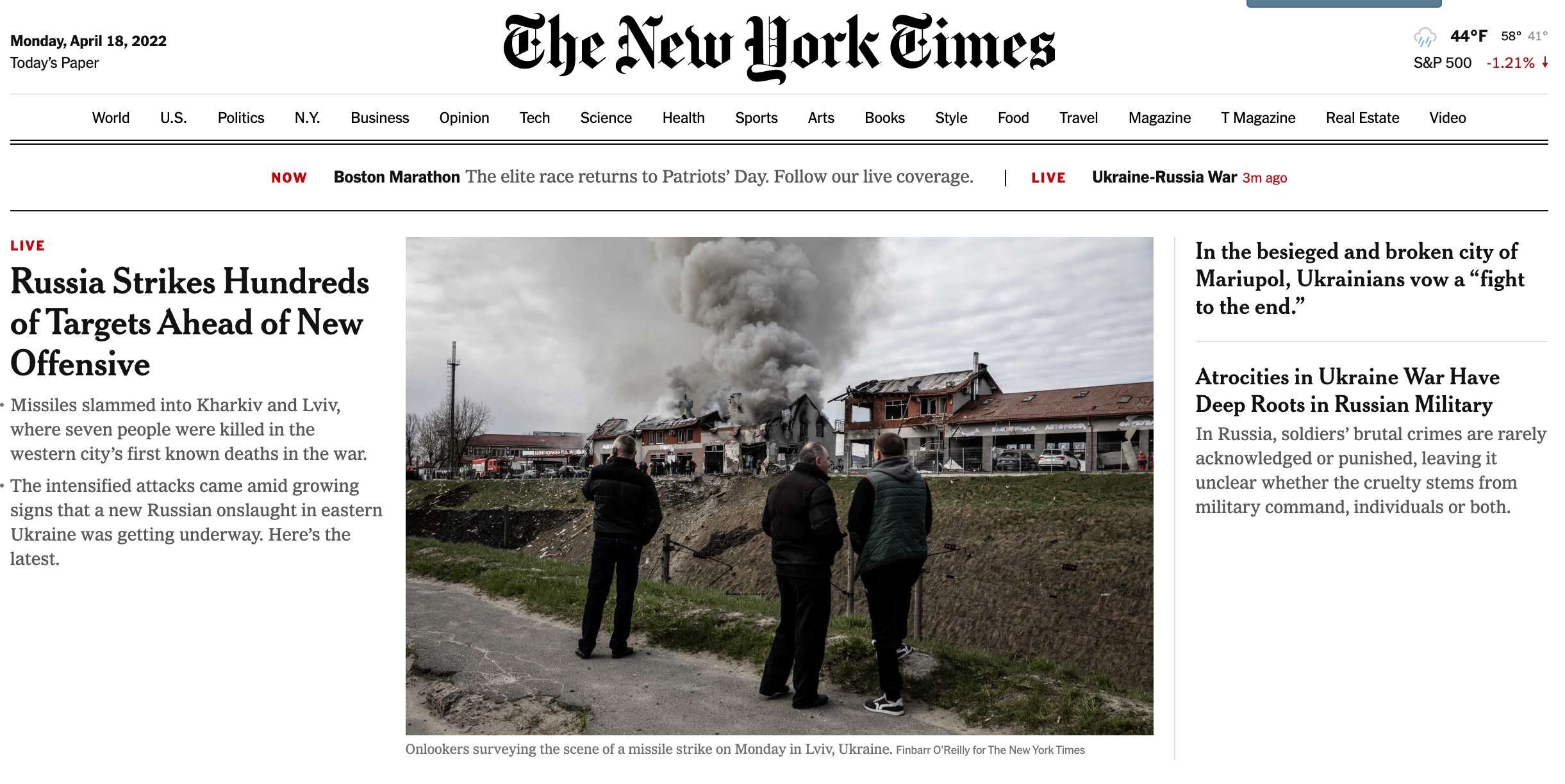Bomblets Go
(Signs of the Times is a work of fiction based on true events. Views expressed are the characters’ own. Viewer discretion is advised.)
The field outside Husarivka lay fallow. A few saplings planted as windbreaks at the edge of the property stood naked under the gray sky. The soil was wet, rich, and loamy. Rhea’s boots weren’t meant for walking in such fertility.
She watched her fixer, a Ukrainian national named Borys, walk through the field. He limped, favoring his left foot. Each step was measured and slow. His gaze never left the soil.
“Talk to me, Borys. Anything?”
“I think it’s safe to come closer.”
Rhea stepped toward her guide. They rarely talked. He just told her where to go and when. Rhea knew he was an old contact from the Crimean War almost a decade ago. She figured that’s why he limped. That’s why he fights the information war now.
The pair walked deeper into the field. They were naked out there. Exposed. No buildings, no depots, no infrastructure — just dirt, a journalist, and a fixer. Which made the 4-foot-long metal tube something of a curiosity.
As they got closer, the object revealed its benign nature. It was a bomb. But the payload had been dropped. It was a cluster bomb. All that was left was the shell. All the bomblets were likely scattered in town.
“These cluster bombs hold about 30 bomblets,” Borys said.
“How do you know?” Rhea stepped closer till she was side-by-side with the fixer.
“I’ve seen them in Crimea.”
Borys kneeled in the dirt. He prodded the bomb with his hands. He looked for markings. In the distance, a jet roared across the sky.
“Let me get a picture,” Rhea said.
“Take it from this angle.” Borys flipped the one bit of script away from the camera’s gaze.
“I like the other way you had it.”
“There’s more information about the payload this way.”
“Just flip it so I can take a picture of the words.”
Borys stared at Rhea.
“Go on,” she said. “Flip it.”
She snapped the picture and sent it to the analysts back in New York. She probed the metal tube with her muddy boot.
“It’s completely disarmed, yeah?”
“Of course. It won’t explode here. Maybe elsewhere.”
“The bomblets?”
“Sure.”
“Can you read the script? It almost looks Ukrainian. I thought Russians didn’t have the euro sign in their alphabet.” She flexed the toe of her boot at a specific letter.
“That is correct.”
“So whats it say?”
The sound of another jet howled through the sky. Borys looked up.
“We must go.”
Rhea snapped a few more photos. One of the bomb. Another of the script. One of Borys looking at the sky. Another of him hobbling to the road.
Rhea jogged alongside Borys, holding her camera to keep it from bouncing. The earth was spongy under their feet. The squish of water and mud could be heard alongside their panting. Borys got in the driver’s seat. Rhea threw her backpack behind the passenger’s seat and got in.
They sat there catching their breath. The windows of the car filled with steam.
“Tell me what the bomb said.”
“It’s Ukrainian.”
“Why?”
“What?”
“I mean, why would they do that?”
“War is war.” Borys reached for a cigarette in a soft foil package that perpetually lived in his breast pocket.
“But the bomblets. They’re going to kill civilians.”
“It’s a risk they’re willing to take to win.” Borys lit the cigarette. “Slava Ukraini.”
